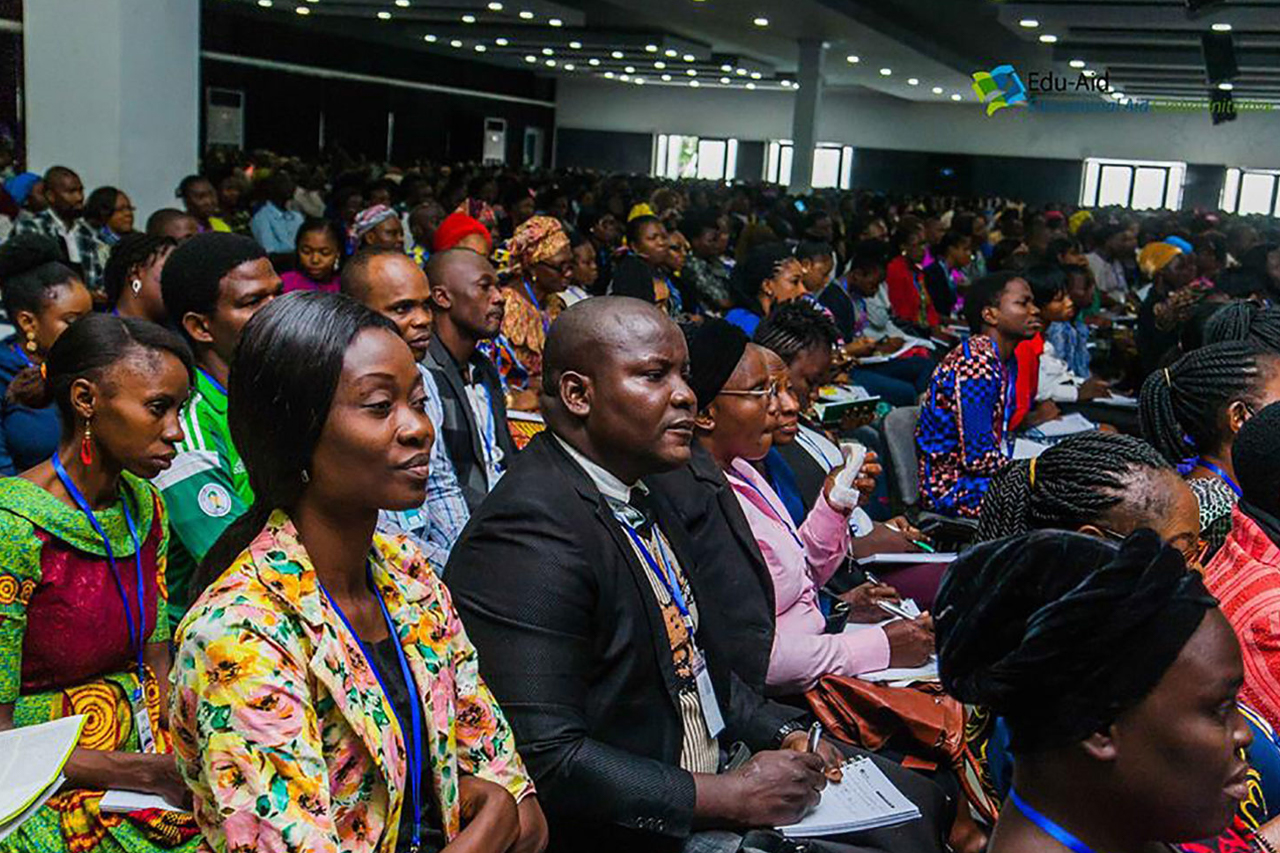 +234 706 673 6513
+234 706 673 6513
 info@lagosteachersconference.com
info@lagosteachersconference.com
Educating the Digital Child. The Generation Z Child
July 21, 2019 |by eduaidccc | 0 Comments | blogStudents have been tagged as unserious and unready to learn, particularly in Nigeria where the rate of failures of terminal exams continues to be alarming. A primary school pupil is more likely to know the lyrics of the favorite’s musician song better than they know their multiplication tables in Mathematics. Born into the age of smart things (from 1995-2012), the students in primary school today are part of the Generation. Z and one distinguishing factor of the Gen Z is that they are pretty smart. People belonging to the Gen Z exhibit certain characteristics which have implications for their learning.
- They have access to information: Thanks to the internet and Search engines, they are able to access information very easily.
- They have a short attention span: Because they exposed to a lot of information at a time, they tend to spend a shorter time on a single information.
- Preference for multimedia over text: They rather watch a video than read a book or listen to audio.
- Preference for Fast-Paced Activities: For Generation Z, everything moves at the speed of light and so activities based on such are most welcomed by them.
The implications for their learning include:
- Access To Information Makes Them More Inquisitive: As a teacher, it is not uncommon for you to find your students asking you questions that you probably had not thought when you were their age. Don’t blame them, they have access to several information in the digital world, sometimes faster than you their teachers. Therefore as teacher, in order to effectively educate a Generation Z child, you need to constantly develop yourself and stay connected to happenings. Social Media is one of their main sources of information and so you have to be on these social media platforms to be informed.
- Research shows that a child between 5- 7 years old is only able to concentrate on an activity for 10-15 minutes, while those between 8-10 years old can go for 15-25 minutes. This is rather short as most of our classes are longer than these said times and teachers have to struggle to keep the children focused throughout the whole time. Based on the above, it is important for teachers to insert breaks or activities during their classes to ensure that they don’t loose the attention of the students who may consider the class as boring when they can no longer concentrate
- The Need for Other Sources of Information: The tradition of using books in schools is beginning to disenchant students who belong to the Gen Z as their preference for Multimedia become really obvious when they are given books in black inks on white papers. Other sources of information should be introduced such as videos, pictures, artworks and if it has books to books, they must be visually engaging, filled with images and illustrations.
- The Need For Activity: Sitting still listening to you as a teacher might prove a difficult tasks for your student who are mainly children and have loads of energy. Teachers should endeavor to include physical activities, interaction and team work (working in small groups) in their classes to make the class more engaging.
Educating a Generation Z Child is obviously a different ball game which may prove challenging but is definitely attainable.
KEEP READINGChild Abuse, Molestation and The Teacher’s Role in Ensuring Safety and Security in Schools – Barrister Taiwo Akinlami
July 3, 2019 |by eduaidccc | 0 Comments | blog, EducationThe arrival of the 21st century brings with it opportunities and threats, and as change agents, we have lost the right to be ignorant. Without the right knowledge, the digital age in the wrong hands can be a weapon for mass destruction. The digital age brings with a lot of activity such as gay acts, transgender, pornography which has gone viral as a result of the internet and easily accessible to children. If we as teachers, parents remain in our analog age we can’t protect the digital child.
ABUSE OF CHILDREN
A recent report conducted by UNICEF discovered an increase in violence against children in Nigeria. 1 in 2 children experience emotional violence, 15.1% of girls and 24.8% of boys first experience sexual violence at school and a lot of our children are not reporting abuse on them because they think that no one will believe them. In Lagos, Gov. Ambode signed into law the Child Rights Protection Law stating that it shall be mandatory for all Lagos state child focus organization authorities to adopt the child protection policy. Edu-aid is creating awareness that teachers have a role to play in protecting the rights of children.
ROLE OF THE SCHOOL
Teachers need to be aware of the dangers of child abuse and its effect. They are to report any hint of abuse on the children. Firstly, there are three kinds of abusers:
- Deliberate abuser
- Reflective abuser- this kind abuses a child without meaning to. He/she does it unconsciously.
- The silent operator- this one is aware of the abuse going on and does nothing about it.
The abuser does four things; profiles the child grooms the child, attacks and manipulate the child. The abuser goes in search for the quiet child who can’t stand up for himself when abused and start to call the child funny names from then goes on to manipulate and abuse the child. This is why teachers must be trained on child protective policies and also create a warm school environment where the children feel connected as this enables them to have a better behavioral outcome.
The world is a big place and we need to focus to change our environment and our self. We are the change the world needs today and we must make commitments to safeguard our child, protect them from child abuse.
KEEP READINGThe Need for Teacher Training
October 19, 2015 |by eduaidccc | 0 Comments | Education | business“We did not speak English in my primary school”. That was my friend narrating his primary school experience to me which I was finding it difficult to believe. He went ahead “When non-Yoruba speaking teachers were brought to our school, they either had to learn the language or request for transfer out of the school, because we the student did not understand English”. Still in shock at this revelation, I asked “How then did you learn to speak English?” I had teacher in my first year in Junior Secondary School (A public school also) who took special interest in me; although I had no money, he took me extra classes, monitoring me and ensuring that I was able to catch me with my mates. Though I don’t know where the teacher is today, but his investment in my education was why I could continue my studies and be who I am today”.
This is a sad but true account of a friend who attended a public primary school in Lagos. Although the account was quite a number of years ago, it still reinforces the important role of teachers. The teaching profession is often belittled in this part of the world, even by the teachers themselves. However, the role of teacher cannot be over emphasized. Beyond imparting knowledge, a teacher is a mentor, a coach, a counsellor, and a parent.
However, we do not find many teachers like my friends teacher, who go the extra-mile just to see that a student improves his academic performance with no reward or incentive attached. Many teachers lament about the poor remuneration, which is true and can be demoralizing. However, beyond higher wages, there is need for continuous learning and training for teachers, particularly to improve pedagogy. Teachers often lack the skills to communicate technical knowledge and create an atmosphere for learning to take place.
Just like any business invest in their human resource, it is important that the government begin to invest in teacher training. Teacher training should cover areas such as Classroom Management, Social and Emotional Learning, Instructional Design etc. Quality Teacher Training will improve academic outcomes, as delivery will be more effective.
KEEP READING


